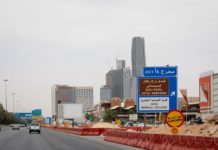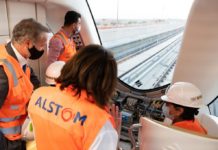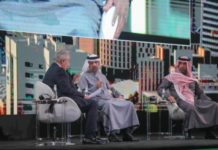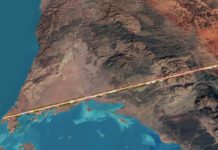Richie Santosdiaz is an economic development expert, and Hekmat Dahabi is a sponsorship and transportation expert. Both work for Rise Group ME, a Dubai-based firm whose experience includes working on projects with the Riyadh and Dubai metros.
Introducing new sustainable forms of non-fare revenue generation programs can be quite challenging for transportation projects.
Major transport project’s main objectives are usually cantered around providing efficient operational and public transport objects, but one overlooked area is non-fare revenue generation. Valuing non-fare revenue can be difficult and coupled with that various factors make it challenging to understand whether the property the correct valuation and if it is being over or undersold.
Sponsorship is where an investor (usually a company) has the opportunity to earn a right and benefit, such as with having naming rights to the asset. It is common in other sectors, particularly with sports such as in the United States where various stadiums and arenas have naming rights opportunities – examples include United Center (home of the Chicago Bulls) and Emirates Stadium in London (home of football club Arsenal). It is such a massive industry that, for instance, the sponsorship alone on just basketball jerseys in NBA in North America is worth over USD 1 billion.
Transportation, such as metros, have seen significant and innovative thinking and the lead is coming from the Middle East. Much of it started with Dubai Metro and then now with Riyadh Metro. It might seem bizarre to some to see transportation assets, such as with metro stations, being in essence auctioned off to sponsors. However, as in the previous examples in sports, it is such as typical part of our lives and helps the two parties involved – the investor to help with brand exposure and for the asset owner to raise significant funds.
In the case of Dubai, the largest city in the United Arab Emirates (UAE), in general, it is already the undisputed regional hub across a variety of sectors (and in others like transportation particularly with aviation) a global leader. With respect to the Dubai metro, the city has already generated and spearheaded much of its talent in innovation, such as with sponsorship and naming rights of its assets. From a quote in Gulf News, Dubai Metro Naming Rights Project is a first-in-the-world revenue model for public transport infrastructure, which was created in 2008.
Anyone who has been to Dubai would have seen various metro stations with naming rights embedded in the network, from Etisalat station (Etisalat is one of the major UAE-based telecoms companies) to ADCB (ADCB is a major Abu-Dhabi-based bank)
Dubai Expo 2020 and the construction happening across the city to prepare for the world’s largest gathering of people (Expo 2020 is expected to attract 25 million visitors) includes an expansion of Dubai’s metro. Dubai has been a pioneer in naming rights of metro stations globally, where This first-in-the-world revenue model has helped the Road and Transport Authority (RTA) generate Dh2 billion ($544 million USD) in a decade. Now, with the expansion of Dubai’s metro to the new expo site, a new development where Expo 2020 is mainly be held, Dubai end of last year began to offer naming rights to seven metro stations.
With Dubai leading the forefront in offering naming rights as a viable revenue model for some of its metro stations and Riyadh also following a similar approach, it offers something innovative for others across the world to follow. By integrating the sponsorship approach correctly with the right blend of urban design, the transportation sector as a whole can find new ways of diversifying its revenue where, through sponsorship, can generate significant money.
With Riyadh, the capital and largest city in Saudi Arabia, the city is undergoing a $23 Billion USD metro line construction project that, once expected to be completed fully in 2021, will have six metro lines.
The metro project so far, with regards to sponsorship and naming rights, has generated over 1 billion SAR ($278 million USD) in naming rights of eight metro stations across the planned network. These ten-year contracts include the following companies: Saudi British Bank (SABB), Al Futtaim Shopping Malls Company, and Saudi Arabia’s major telecoms company, Saudi Telecom Company (STC). More
By Richie Santosdiaz and Hekmat Dahabi https://www.logisticsmiddleeast.com

















